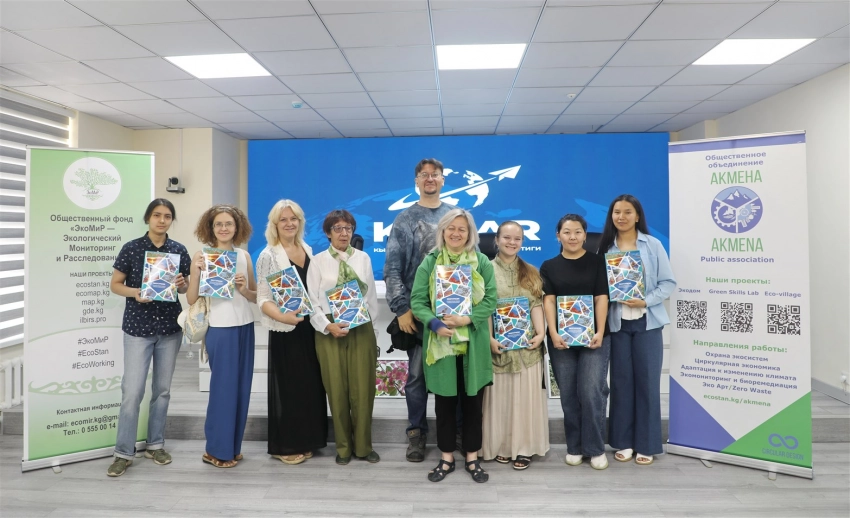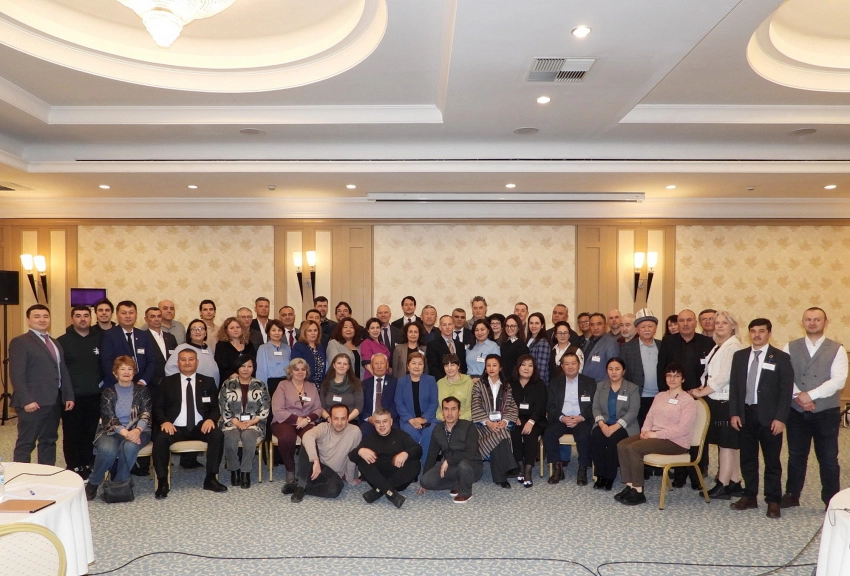Ecotourism and preservation of wildlife treasures in Kyrgyzstan

Date: May 30, 2024.
Place: International University of Kyrgyzstan, Bishkek, avenue Chui, 255a
On May 30, 2024, the Public Association "Union of Photojournalists" and the International University of Kyrgyzstan opened a new environmental photo exhibition in Bishkek. Vladislav Ushakov, a well-known photojournalist and expert at the Public Fund "EcoMiR" (Ecological Monitoring and Investigation), presented more than 100 works to the attention of the residents of Bishkek and guests of the capital.

The main purpose of the exhibition is to attract public attention to the need to preserve the biodiversity of the key territories of Kyrgyzstan. There are 32 such territories in our country, and each of them is a combination of unique landscapes, flora, fauna (including species listed in the Red Book), as well as historical and cultural attractions.

Among the "hotspots" known to the majority of Kyrgyz people are Sary-Chelek, Besh-Aral, Dashman, Chychkan, Eastern and Western Priissykkulye, Besh-Tash, Talas River, Lake Son-Kul, Lake Chytyr-Kul and some others. At the same time, only experienced tourists, guides or local residents know about others. At the photo exhibition, you can see unique pictures of species of animals and plants, landscapes, as well as people who carefully preserve unique corners of nature from destruction.

As noted by the author of the photo exhibition, Vladislav Ushakov: "The photo exhibition is only a small part of the first free-photobank* of unique natural territories in Kyrgyzstan, created by the Union of Photojournalists within the MAP.KG project from 2022 to 2024." Currently, the MAP.KG website presents descriptions and photographs of untouched nature territories, which, according to Professor Emil Shukurov, are "zones of creation and reproduction of conditions for the existence of Life."

An important goal of the project was also to contribute to the development of ecotourism in the regions of the country. You can read amazing stories about Kasan-Sai and Aflatun-Padysha-Ata protected areas, as well as about the possibilities of receiving tourists in eco-camps and guest houses, by visiting the "Ecotourism" and "Keepers" sections of the website.
Rector of the International University of Kyrgyzstan Adieva Aynura Abdujalalovna noted: "We are confident that the photo exhibition will play an important role in the ecological education of young people and inspire them to new ideas and projects in the field of nature protection in Kyrgyzstan."
According to the ecologist Evgenii Postnova: "The photo exhibition makes you think about the future." Despite the active efforts made in the last 20 years, the Earth's biodiversity continues to decline, and the ecological balance is still undergoing changes. About 60% of the planet's ecological system is degraded or used recklessly, which leads to the loss of biological diversity and serious consequences that may worsen in the next 50 years. And this directly concerns Kyrgyzstan."


The photo exhibition will be located in the lobby of the West Campus of the International University of Kyrgyzstan until June 30, 2024. We invite all who wish to visit it and discuss how we can contribute to the protection of key areas of biodiversity and the development of ecotourism in Kyrgyzstan.
_______________________________________________________
*CEPF https://www.cepf.net/ https://www.mca.earth/










